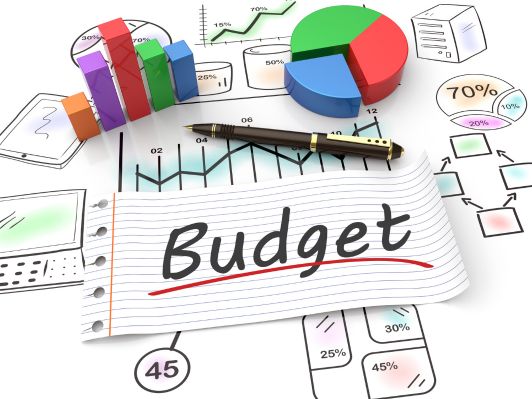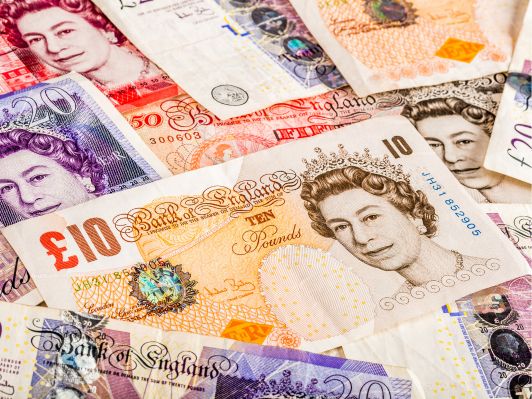Savings are a crucial part of money management. The earlier you can start to build financial habits, the better. Research shows that 47% of adults aged between 18-24 have little (less than £1,000) or no savings.
Money is still a stigma for many people, and discussions can often prompt fear or judgement. We’re here to tell you that it doesn’t need to be that way.
Saving money can be hard, especially in your 20s, but this article will break it down step by step and hopefully in time, it will become second nature.
Table of Contents
Why is it important to save money at an early age?
Saving at an early age is vital for several reasons. Firstly, it helps to develop a habit of responsible money management that can last a lifetime. When you start saving early, you learn the value of money and begin to build your personal finance.
Secondly, it can help you achieve your financial goals. Whether you want to buy a car, go to university, or put a down payment on your first home, starting early gives you more time to save and take advantage of compound interest to grow your savings over time.
Additionally, unexpected expenses and emergencies can happen at any time, and having extra money can help you deal with them without going into debt or relying on others.
How to start saving money in your 20s?
Building a solid financial foundation for your future is crucial. Here are some tips to help you manage your money in your 20s:
1. Create a budget and stick to it

If you’re not a spreadsheet kind of person, try apps that help you budget. These apps connect to your bank account so you can see everything in one place. The most important aspects of budgeting are knowing what you earn and knowing what you spend.
Check bank statements and receipts to see exactly how much you are spending each month. Look at your household bills, rent or mortgage payments, and credit card payments and how much you are spending on other essentials such as food, petrol, toiletries, pet food, etc.
Then subtract your monthly expenses from your income. Your income isn’t just limited to your salary but can include your investment account, cash gifts, retirement savings, child benefits etc. This will determine your next steps.
2. Open up a savings account and set up automatic contributions
Think of this like a ‘set it and forget it’ approach. Automation takes the conscious decision to save off your plate and help your money grow. Once you have enough money, you can decide what to do with your savings, for example, you can start investing, use it for a down payment or use it as a retirement account.
3. Start with cash savings

A penny saved is a penny earned. One way to save is to start paying with cash and popping your change into a jar. Over time it’ll accumulate without you trying and could come in handy when you need it most.
That said, we know that cash payments are becoming less favourable, so you could try the 52-week savings challenge.
You start by putting in £1 and adding £1 every week. By adding £1 in week 1, £2 in week 2, £3 in week 3, and £4 in week 4, you manage to save £10 a month. While £1 may look small, it adds up to £1,378 by week 52.
You can use these tips while doing part-time gigs along with studies. This can help you save money for your laptop simply to have emergency savings.
While cash savings may be effective in getting you into a habit, they are inefficient as you miss out on the passive income investments can generate.
4. Set aside 20% of your income for savings
You can convert the savings jar into a more organized savings plan. When preparing your monthly budget, try adopting the 50/30/20 rule, where:
- 50% of your income is allocated for essentials like food, rent, utilities, and local travel.
- 30% is allocated towards wants like shopping for new shoes or dining out.
- 20% is allocated towards savings accounts like retirement, emergencies, and financial goals.
When you live paycheck to paycheck, you might not be able to stick to your budget. To help, you can create a separate savings account to transfer 20% of your income. If you earn £2,500 per month, move £500 and consider your salary to be £2,000, and prepare your expenses around that.
Adjusting to a lower income might look difficult but spending frugally for a few years can bring long-term gains.
5. Spend frugally in your 20s
Spending frugally doesn’t mean you have to sacrifice everything, it’s about readjusting and finding a balance in your spending. For example, Instead of dining out, you can opt for a dinner party at home or a potluck. Swap club nights for game nights, and skip purchasing new clothes for thrifted gems.
Choosing a less expensive option can help you reduce expenses and manage your budget within 80% of your salary. Now that budgeting is in place, the next step is to focus on the 20% set aside for savings.
6. Build an emergency fund with your savings
As a rule of thumb, you should set aside six to nine months of your living expenses in an emergency fund. It will give you the flexibility to meet basic needs if you lose your job. The emergency fund can help you avoid missing payments such as utility and rent that could hurt your credit score. If you have exhausted your emergency fund, you could consider emergency loans to meet unexpected expenses but repay them on time to avoid falling into debt.
27% of 18 to 24-year-olds most likely have £1,000 or less set aside for emergencies. This is a risky financial position as people use debt to pay for necessities. While saving for an emergency fund is important, it is equally important to avoid getting caught up in a credit card debt spiral.
7. Pay off debt immediately
Debt is a double-edged sword. It can help you build your credit score if managed well or push you to financial stress if not managed well. If you have a credit card loan or student loan, make it a priority to channel all your surplus cash to accelerate repayments, as student loans will only be written off when you’re 65.
Experts suggest spending 20% of your pay towards debt repayment. You can also consider consolidating your debt from various accounts to one account to make it easier to track and repay instalments.
Accelerating your loan repayment will help you reduce interest expenses, leaving you with more money to save for other financial goals. A lower debt can enhance your credit score, giving you favourable credit terms from landlords, banks, and lenders.
It is a good habit to check your credit report frequently to find discrepancies and fraudulent activities.
8. Create a debt reduction plan
If you have a significant amount of debt, whether from credit cards, a mortgage, loans, student loans or otherwise, it’s important to work towards a debt-free life.
One way to do this is by focusing on the debts with higher interest rates and starting at the top of the list. This is also known as the avalanche method. By putting your high-interest debts first, you will eliminate the ones that cost you the most each month.
9. Create smart financial goals for your 20s and allocate funds
Once you have a stable emergency fund and control your debt, you can focus on saving for other goals like buying a car, or house or saving for retirement. You can create Smart (specific measurable, attainable, realistic, time-bound) financial goals and allocate funds among different goals, depending on time frame and importance.
For instance, at age 20, retirement is a goal that is important but not urgent. But don’t leave saving for retirement for later. You may allot a slightly lower amount in a retirement plan and a higher amount in short-term goals like paying annual rent.
As we said before, early savings could convert £500/month into a retirement fund of more than £728,000. Seek ways to boost your income by building more than one income stream. Explore the various non-traditional gig works, like getting paid for taking a survey or using a website. It doesn’t impact your studies or main job and pays you.
10. Consider retirement and investing

Retirement feels like an age away when you’re in your 20s but it’s crucial to think about retirement accounts for your future. It’s tempting to spend money now, but it’s not always wise. If you’re not sure where to start, you could seek help from a financial advisor.
They should be able to give options in regard to a retirement account as well as other options available to you.
11. Establish the habit of saving money
If you follow any of the above-saving tips, you’ll be on your way to establishing a habit. On average it can take from 59 to 70 days to build a habit, so if you can spend less money over the course of three to six months, you’ll find yourself closer to your goals.
12. Start saving for long-term goals
We know it can be hard, especially if you’re living paycheck to paycheck but saving for the long term is a step in the right direction. Your savings goals will be personal to you, you might want to save for a holiday, or pay a chunk towards your mortgage, or even have a pot set aside for the winter months.
How much should a 20 year old save?
The amount a 20 year old can save will vary, but generally speaking young adults in their 20s should allocate 10% of their income to savings. Finances can be tricky to manage at a young age, but we hope we’ve helped you see that it’s doable.
Final words
Your 20s are the best time to earn, invest and train yourself financially. You might make some financial mistakes, but you have time to rectify them and learn from them.
The choices you make today, and the money habits you form, will go a long way in securing a happy, stress-free life for yourself.
Here’s wishing you a bright and happy financial future!
Disclaimer: The information given above is provided for reference only. This is not financial advice.

